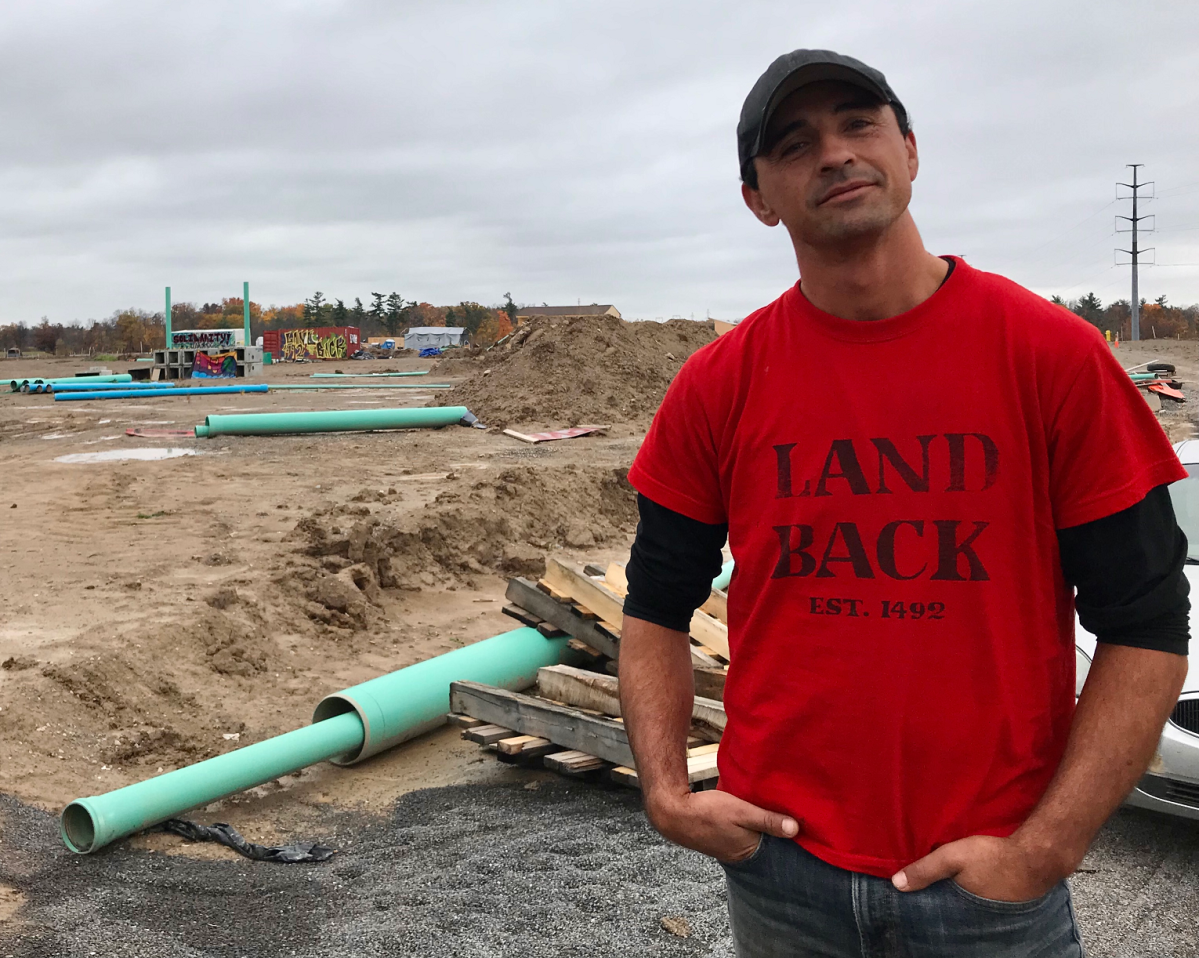A panel of judges is deciding whether or not the spokesperson for a Six Nations land occupation was given a fair opportunity during the Superior Court proceedings that resulted in a pair of permanent injunctions in Caledonia a year ago.

On Tuesday, the Ontario Court of Appeal heard from counsel on both sides of the legal battle over a plot of land that has been dubbed 1492 Land Back Lane by Haudenosaunee land defenders.
Last October, Justice R. J. Harper made two injunctions permanent — one that prohibits people from trespassing on a McKenzie Road construction site where a developer had planned to build more than 200 homes, and another that prohibits blockades from being set up on roads in Haldimand County.
The judge also ordered Land Back Lane spokesperson Skyler Williams – the only defendant named in the case – to foot the legal bills for the dispute.
Williams appealed the decision, which is why the case is back in court.
Barry Yellin of Ross and McBride LLP, who is representing Williams in the appeal, said the court process was “procedurally unfair” and that Williams should not have been banned from the proceedings.
- Carney, Trump and Sheinbaum talk trade in Washington at FIFA World Cup draw
- Health Canada recalls glucose monitors that may give ‘incorrect’ readings
- Newfoundland girl’s disappearance prompts calls for tougher laws to stop abductions
- Industry experts question Saab’s pitch to bring 10,000 jobs to Canada
“There was no attempt at reconciliation in the process that was before that court.”
Williams had his submissions struck from the record when he acknowledged he would not obey the orders of the court, which resulted in him being found in contempt.
Yellin said that meant Williams didn’t have an opportunity to defend his position that the case dealt with Indigenous land rights.

Get daily National news
“The estrangement of Indigenous peoples from the Canadian justice system is something that the court needs to consider within the context of the rule of law itself. That estrangement was manifested even more by the striking of the pleadings and kicking Mr. Williams out of court.”
Yellin said the judge could have had an ‘amicus curiae‘ – Latin for ‘friend of the court’ – to act as an unbiased party in the court to provide context for the constitutional issues reflected in Williams’ position as an Indigenous person without legal representation.
“The decision to grant a permanent injunction was made without any Indigenous voice in the proceeding,” said Yellin.
“Bound up in the appellant’s defence, notice of the constitutional question and the third party claim were points of law, in fact, that required judicial consideration. Amicus, in my submission, would have ensured that those points could have been considered prior to the determination of the final order.”
Foxgate Developments cancelled the McKenzie Meadows subdivision earlier this year, citing the ongoing land occupation as the main reason for calling the project off.
Paul DeMelo of Kagan Shastri LLP, representing Foxgate in the Court of Appeal, argued that Justice Harper’s decision should stand, saying Williams engaged in an “abuse of process” by acknowledging he would continue to disobey the court orders.
He said that disagreeing with a court order doesn’t give someone the right to disobey that court order and that Williams had the opportunity to have his position heard if he hadn’t chosen to be in contempt of the court.
“If a person flagrantly states that they will not abide by an order of the court that does not accord with their interests, such person should not have the opportunity to also seek remedy from the court.”
More than a year after the occupation began, the land defenders remain at the McKenzie Road site, saying the land is unceded Haudenosaunee territory.
It’s not clear when the panel of judges will come back with their decision, as they indicated they would be reserving it until a later date.
If the appeal is successful, the case would once again go to the Superior Court before a different judge and Williams’ submissions would be reinstated.
Justice David Doherty pointed out that the questions raised by Williams are “on their face, important questions” and shouldn’t disappear from the discussion along with him.
“Maybe amicus should have been appointed at that stage to assist the judge in understanding whether tossing Mr. Williams out might also close the door on some very important arguments.”



_848x480_1397405763961.jpg?h=article-hero-560-keepratio&w=article-hero-small-keepratio&crop=1&quality=70&strip=all)



Comments